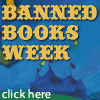
It’s Banned Book Week this week. Interesting title isn’t it: “Banned Books Week”: alliterative, declarative, and attention getting.
The campaign is worthy enough. The American Library Association would like to keep as many books as possible freely available to anyone who wants to read them.
The thrust of the campaign is startlingly absolutist. It takes the stance that banning books is absolutely wrong. Therefore, those who seek to ban books are absolutely wrong.
This is one of those arguments that those of us with a liberal education tend to nod their heads at and murmur “Here, here.” while dropping some coins in a box or wearing one of the inevitable “Good Cause” ribbons (bracelets in the case of this campaign – higher appeal to the high-school demographic).
But perhaps we should use that liberal education to examine what is really happening here.
Firstly, the “Banned Books” being referred to haven’t necessarily been banned, they have been challenged, but “Challenged Book Week” wouldn’t get nearly as many automatic nods would it?
Challenged means that someone has used a formal process to express the view that public money should not be used to make certain books freely available in schools or libraries.
Many of these challenges are unsuccessful so many of the books on the list have not been banned.
The
The ALA provides press packs which push the issue emotively by saying in the opening paragraphs (which everyone reads) that “More than a book a day faces expulsion from free and open public access in U.S. schools and libraries every year.” The tone suggests that this is clearly a Bad Thing and that Something Must Be Done. But think about this for a moment: that’s a few hundred challenges a year (405 in 2005) from across the whole of the
If you read the full press pack (which few people do) you find that 70% of challenges are made with respect to books in school libraries.
Let me put that another way. For books that are freely available (to adults and children) in public libraries (which don’t carry the tacit “read this – it will be good for you” label that school libraries do) there were approximately 122 challenges – that’s less than 3 a week. I was unable to find out from the
The
But there is intellectual slight of hand in this statement as well. Firstly it’s not clear how many of the 42 books challenged where challenged in 2005. If they were all challenged once each in 2005 then they represent about 10% of all challenges. When you check the list of great and good books on the site the
The second slight of hand is the implication that these books are Great Literature and therefore ought to be beyond challenge. Great Literature is Good For You.
So who defined these books as Great Literature – the Nobel Organisation? – Professors of English Literature at famous universities? - Well read librarians? No. The list was compiled in 1998 by undergraduate students taking degrees in PUBLISHING: And to help them along, they were given a starting list of 4,000 books to choose from. This list of the top 100 novels is therefore the outcome of a multiple choices exercise by publishing undergrads who wanted to know what would continue to sell.
Take a look at the list. It’s a hoot. Personally, I’ve only read 42 of them (though I’ve seen the movie of a few more) but, I ask you, on what criteria are “”Ulysses" and “Finnegan’s Wake” on this list? Could it be that a special award from the publishing industry to books that are bought but that few ever open and even fewer ever finish? And do you think that Rushdie’s “Satanic Verses” is ranked higher than his “Midnight’s Children” because it’s a better book or because the fatwa made it a publishing sensation?
I think the
I don’t know about you, but I’m no longer nodding automatically in favour of the
So let’s go back to basics here.
I am left with the impression that if the people behind the
I find that line of argument arrogant, undemocratic, and intellectually impoverished.
But then, I just invented for them – rather in the same way that they treat their opponents in their “Banned Books” campaign – in order to take away the automatic halo they might otherwise get.
I’m sure that are many librarians who try their best to keep books available and who would not buy the stance implicit in the “Banned Books Week” marketing campaign.
The “Banned Book Week” campaign actively targets school children. Is this really the standard or argument the
In my view it is healthy to allow people to challenge that material that will be presented to their children. It is also healthy to run a process which allows people to make an argument against the challenge.
At the moment it seems most challenges are failing.
I hope that that is because the challenges are ill founded and not because the literate classes circle the wagons around any book in print and then use their expensive educations to brow beat people who have well-founded concerns.
I encourage you all to get involved in these debates in your local community.
I also encourage you to suggest to the




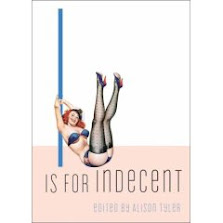


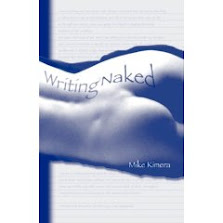
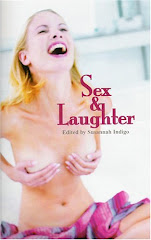
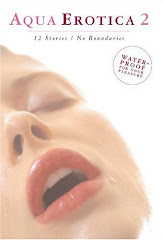

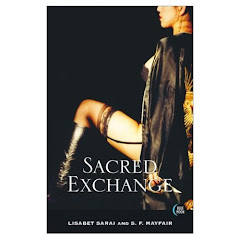
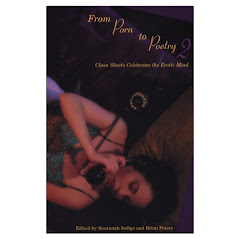
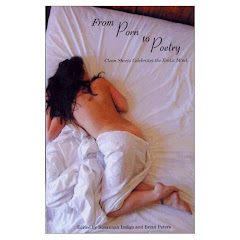



No comments:
Post a Comment